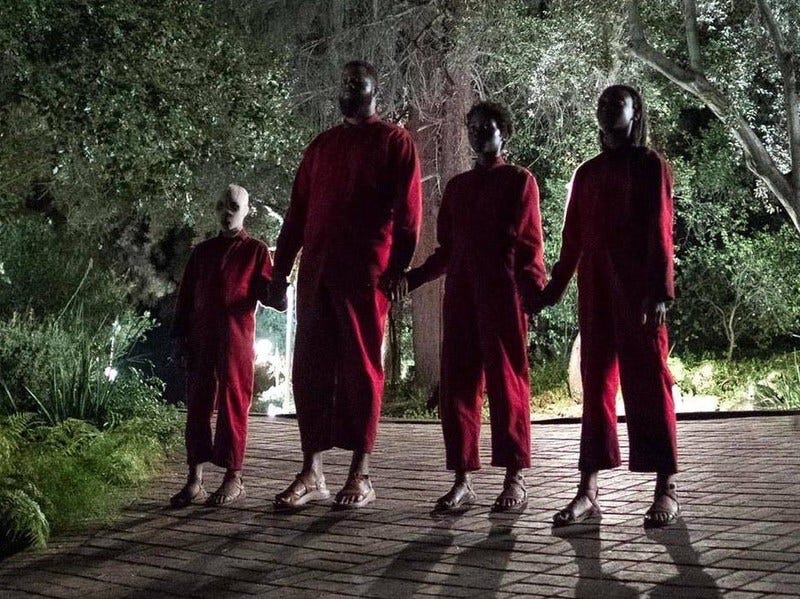Us

“How many of everybody is there going to be?”
“Us” is top-drawer horror, a creepily convincing modern fable that haunts our hearts without getting caught up in the busy semantics of explaining everything. Like “It Follows” from a few years ago, there is a weird, existential threat and all you really need to know about it is that it’s coming for you.
Being of the horror genre its effectiveness is somewhat attenuated by obedience to tried-and-true tropes. The story moves quickly from brutal house-to-house disturbances to systemic society-wide chaos in a hurried way that feels like a reach. And because you know there’s going to be a big twist, it turns out to be not nearly twisty enough.
Seriously, I had it figured out halfway through. So would anyone who’s watched movies, I think.
That quibble aside, this is a much more interesting and better picture than Jordan Peele’s “Get Out,” which I thought solid but overpraised. “Us” has a tactile feel to it, and it’s almost as if we can sense the scrape of scissors against skin or the globby drops of sticky blood.
Lupito Nyong’o plays Adelaide, a 40ish wife and mother of a prosperous, happy family. They are heading to their summer home near the beach: her husband, Gabe (Winston Duke), is big, goofy and loveable; their daughter, Zora (Shahadi Wright Joseph), is a typical teen girl, plugged into her phone and tuned out of her family; and son, Jason (Evan Alex), is pleasant if a bit odd, prone to occasional epithets and wearing a monster mask wherever he goes.
This same beach town, though, holds tragic memories for Adelaide. In the flashback prologue, we witness her being separated from her parents as a little girl in 1986, wandering away from the carnival into the “Vision Quest” funhouse, which for some reason has been built facing the beach rather than the boardwalk.
There she encounters her own reflection -- except it’s not a simple refraction in a mirror.
Without giving too much away, it turns out that this twin is not just a figment of her imagination, but a very real figure. It seems she has been living in shadow ever since their childhood encounter, nurturing a growing resentment that has turned into a murderous rage.
There are others who come along with her and act as her companions, an inverted version of the family. They all wear red denim jumpsuits and carry large golden shears.
Nyong’o uses an eerie breathless voice while playing the “other mother,” which at first may tempt you to laugh but quietly burrows under your skin like a seeking insect. Her followers are even less verbal, confined to beastly growls and howls.
“Us” starts out like a standard horror thriller, as the marginal hunted are quickly sliced up, though more pivotal characters escape their tormentors, fight back and eventually become the hunters. Then the story gets bigger and bigger, losing the intimacy of close-bodied assaults and strangled threats. By going meta, it loses the wonderfully uncanny minutiae that made it sing.
It wraps up in a satisfying way, though as I said one that won’t come as much of a shock to horror veterans. Sometimes, though, knowing the blade will sink deep doesn’t make it bite any less.

